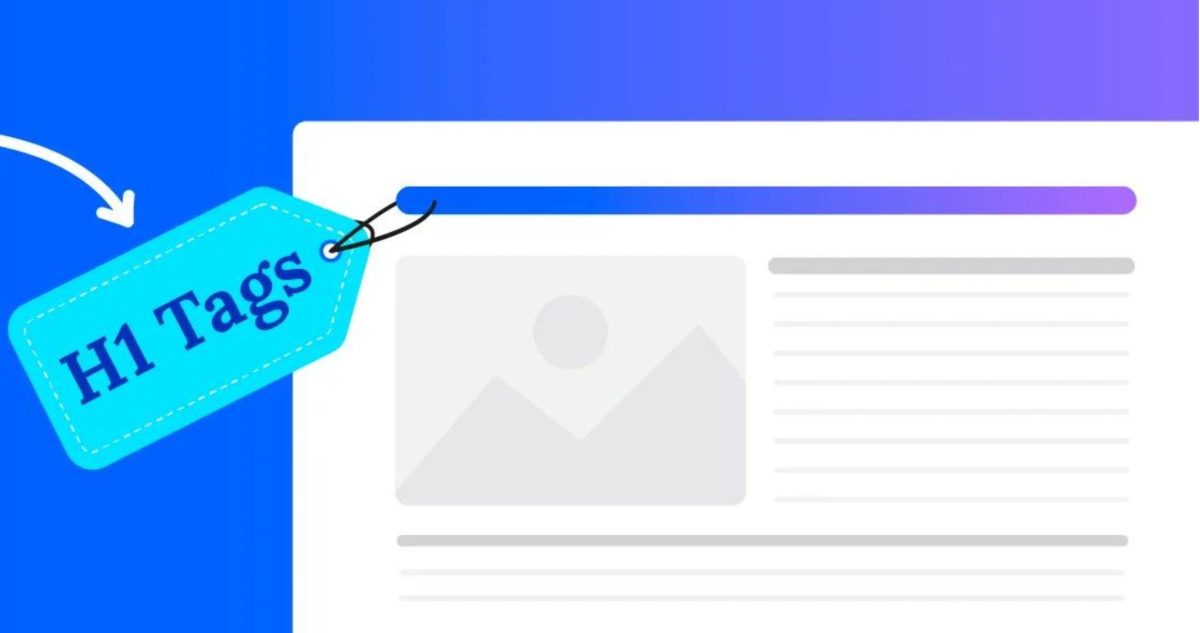How to Optimize H1 Tags for SEO: Best Practices
Optimizing H1 tags is a crucial aspect of on-page SEO that can significantly impact your website’s search engine rankings. The H1 tag, often the main heading on a webpage, helps search engines understand the content’s primary topic. Here’s how to optimize H1 tags for maximum SEO benefit.
1. Use Only One H1 Tag Per Page
Having a single H1 tag per page ensures clarity and helps search engines understand the main topic. While multiple H1 tags can be used in HTML5, it’s best practice to stick to one for better SEO performance.
2. Incorporate Primary Keywords
Include your primary keyword naturally within the H1 tag. This signals to search engines what the page is about and can improve your rankings for that keyword. Avoid keyword stuffing, as it can harm your SEO efforts.
3. Make It Descriptive and Compelling
Your H1 tag should clearly describe the content of the page. A descriptive and compelling H1 tag not only helps with SEO but also attracts users’ attention, encouraging them to stay on your page.
4. Keep It Short and Simple
An effective H1 tag is concise, typically between 20 to 70 characters. It should convey the main topic without being overly long or complex.
5. Ensure It’s Visible and Stands Out
The H1 tag should be prominently displayed at the top of your page and stand out from other text. Use a larger font size and bold formatting to make it easily distinguishable.
6. Align H1 with Title Tag
Ensure consistency between your H1 tag and the title tag. While they don’t need to be identical, they should both reflect the primary topic of the page. This alignment helps reinforce the page’s relevance for search engines.
7. Use H1 Tags Hierarchically
Use the H1 tag as the main heading, followed by H2, H3, and other heading tags to structure the content. This hierarchical structure makes it easier for search engines to understand the content’s organization and improves user experience.
8. Avoid Over-Optimization
While optimizing your H1 tag is important, over-optimization can lead to penalties. Maintain a natural flow and avoid keyword stuffing or creating H1 tags that feel forced or unnatural.
9. Regularly Review and Update
SEO is an ongoing process. Regularly review and update your H1 tags to ensure they remain relevant and effective. As search trends and user behavior change, updating your H1 tags can help maintain and improve your rankings.
10. Test and Analyze
Use tools like Google Search Console and other SEO analytics platforms to track the performance of your H1 tags. Analyze metrics such as click-through rates and search rankings to understand the impact of your optimizations and make necessary adjustments.
By following these best practices, you can optimize your H1 tags effectively, improving your website’s SEO performance and providing a better user experience. Proper H1 optimization is a simple yet powerful way to enhance your site’s visibility in search engines.
I’m a Digital Marketing Specialist, the architect of a brand’s online world. I create and execute strategies to amplify brand awareness and engagement. I juggle creativity, crafting content that resonates, with data analysis to optimize campaigns and measure success. Basically, I’m the bridge between brands and their target audience in the digital space.


